 EDITOR'S PICK
EDITOR'S PICK
Renault Races Past Hydrogen with All-Electric Alpine Flagship
26 Aug 2025 | Synopsis
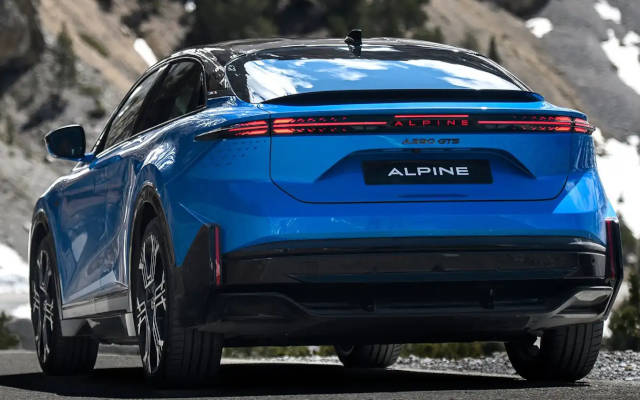 Renault signals a bold pivot beyond hydrogen with Alpine's 470 hp electric 390 GTS. High hydrogen costs, poor infrastructure, and energy inefficiency drive the move toward scalable EVs. Unveiled by Renault and Alpine, the GTS blends luxury, performance, and national pride - boasting 345-mile range, premium design, and an "overtake" boost. It's a clear statement: France sees electrification as the future of high-performance mobility.
Renault signals a bold pivot beyond hydrogen with Alpine's 470 hp electric 390 GTS. High hydrogen costs, poor infrastructure, and energy inefficiency drive the move toward scalable EVs. Unveiled by Renault and Alpine, the GTS blends luxury, performance, and national pride - boasting 345-mile range, premium design, and an "overtake" boost. It's a clear statement: France sees electrification as the future of high-performance mobility.Rivian CEO Says It 'Blows My Mind' That The US Auto Industry Is Reprioritizing Capital Toward Gas-Powered Vehicles
26 Aug 2025 | Synopsis
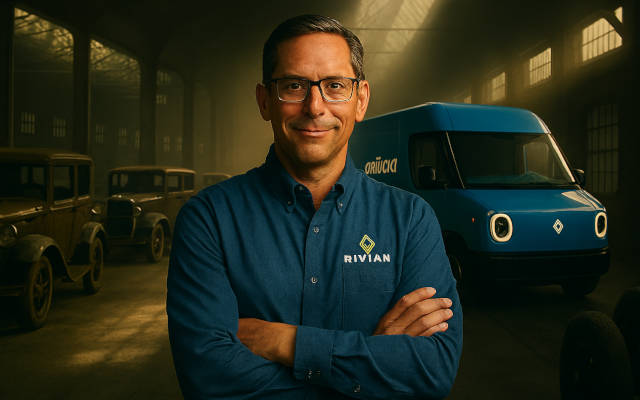 Rivian CEO RJ Scaringe criticized continued U.S. investment in internal combustion engine (ICE) vehicles, calling it a strategic mistake. He argued that pouring billions into gas-powered platforms delays progress and risks falling behind global EV leaders. Scaringe emphasized that electrification is inevitable and that legacy automakers must pivot faster to remain competitive in a rapidly shifting market.
Rivian CEO RJ Scaringe criticized continued U.S. investment in internal combustion engine (ICE) vehicles, calling it a strategic mistake. He argued that pouring billions into gas-powered platforms delays progress and risks falling behind global EV leaders. Scaringe emphasized that electrification is inevitable and that legacy automakers must pivot faster to remain competitive in a rapidly shifting market.Electric Aviation's Summer Surge: Startups, Certification, and the Race to Redefine Flight
25 Aug 2025 | Synopsis
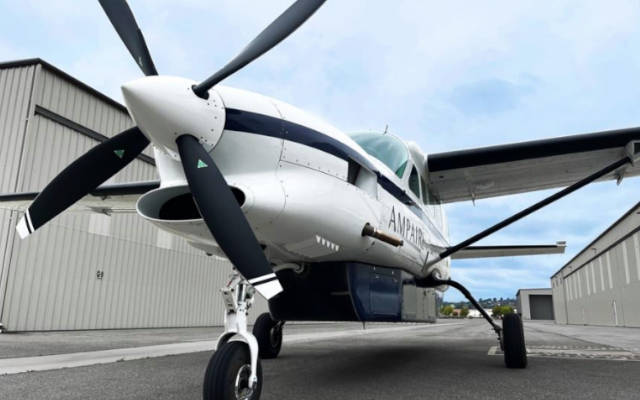 Electric aviation is accelerating as startups like Joby, Archer, Ampaire, and ZeroAvia push toward FAA certification and commercial launch. New FAA rules streamline approval for powered-lift aircraft, while propulsion strategies—battery, hybrid, and hydrogen—diversify range and infrastructure needs. Despite regulatory hurdles, investor confidence and airline partnerships signal that 2025 may be the breakout year for sustainable flight.
Electric aviation is accelerating as startups like Joby, Archer, Ampaire, and ZeroAvia push toward FAA certification and commercial launch. New FAA rules streamline approval for powered-lift aircraft, while propulsion strategies—battery, hybrid, and hydrogen—diversify range and infrastructure needs. Despite regulatory hurdles, investor confidence and airline partnerships signal that 2025 may be the breakout year for sustainable flight.Ford Is A Bellwether: Electric Vehicles Are Coming, Despite Policy Shifts By Oil Bought-Off American Presidency
25 Aug 2025 | Synopsis
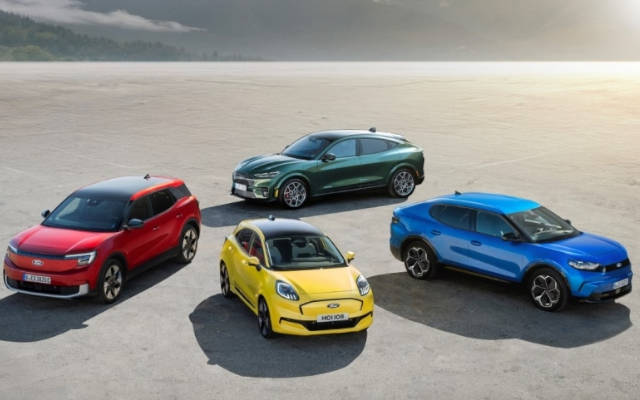 Despite Trump's rollback of EV incentives and emissions rules, Ford is doubling down on electrification. It announced a $5B investment in a modular EV platform and a sub-$30K electric pickup by 2027. Driven more by Chinese competition than U.S. politics, Ford aims to streamline production and stay globally competitive. EV sales remain strong outside Tesla, and legacy automakers are shifting toward affordable models and lithium iron phosphate batteries.
Despite Trump's rollback of EV incentives and emissions rules, Ford is doubling down on electrification. It announced a $5B investment in a modular EV platform and a sub-$30K electric pickup by 2027. Driven more by Chinese competition than U.S. politics, Ford aims to streamline production and stay globally competitive. EV sales remain strong outside Tesla, and legacy automakers are shifting toward affordable models and lithium iron phosphate batteries.An EV Road User Charge Is Looming. Could It Slam The Brakes On Australia's Clean Car Transition?
25 Aug 2025 | Synopsis
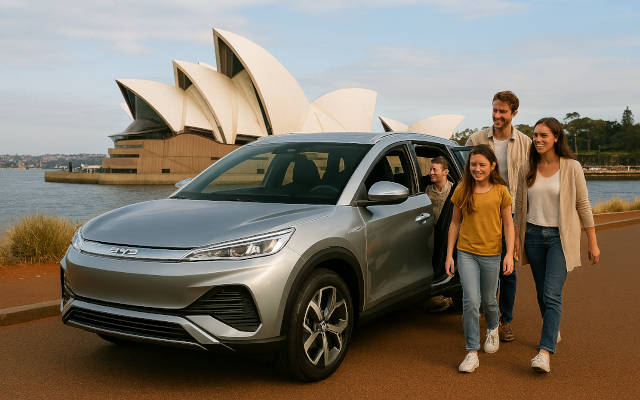 As Australia's electric vehicle fleet grows, the government is considering a road user charge to replace dwindling fuel excise revenue. A proposal from New South Wales suggests a fee of 2.97 cents per kilometre for battery EVs, with collection potentially based on distance driven. Critics worry this will hinder the clean transport transition, arguing the charge should apply to all vehicles, not just EVs.
As Australia's electric vehicle fleet grows, the government is considering a road user charge to replace dwindling fuel excise revenue. A proposal from New South Wales suggests a fee of 2.97 cents per kilometre for battery EVs, with collection potentially based on distance driven. Critics worry this will hinder the clean transport transition, arguing the charge should apply to all vehicles, not just EVs.
 EVWorld Exclusive
EVWorld Exclusive
The Twilight of Strongmen: Who Falls First - Xi, Putin, or Trump?
14 Oct 2025 |  Xi Jinping, Vladimir Putin, and Donald Trump each face rising strain despite their dominance. Xi’s grip on China remains firm but brittle, dependent on personal control and secrecy. Putin's regime, weakened by war and elite fatigue, is most likely to collapse first. Trump's fate rests with U.S. institutions and elections. Among the three, Putin risks falling first, Trump next, while Xi remains the most insulated - for now.
Xi Jinping, Vladimir Putin, and Donald Trump each face rising strain despite their dominance. Xi’s grip on China remains firm but brittle, dependent on personal control and secrecy. Putin's regime, weakened by war and elite fatigue, is most likely to collapse first. Trump's fate rests with U.S. institutions and elections. Among the three, Putin risks falling first, Trump next, while Xi remains the most insulated - for now.
California's Q3 ZEV Surge: The EV Endgame?
13 Oct 2025 |  California broke its ZEV sales record in Q3 2025, hitting 124,755 units and 29.1% market share. The surge was fueled by expiring federal incentives, but sustained by state infrastructure, rebates, and growing model diversity. Tesla's dominance is waning as non-Tesla brands gain ground. With 200,000+ public chargers and a 35% ZEV target by 2026, California's EV market shows lasting momentum and offers a blueprint for national adoption.
California broke its ZEV sales record in Q3 2025, hitting 124,755 units and 29.1% market share. The surge was fueled by expiring federal incentives, but sustained by state infrastructure, rebates, and growing model diversity. Tesla's dominance is waning as non-Tesla brands gain ground. With 200,000+ public chargers and a 35% ZEV target by 2026, California's EV market shows lasting momentum and offers a blueprint for national adoption.
The Real Cost of Clinging to Fossil Fuels
13 Oct 2025 |  The Las Vegas Review-Journal editorial warns of rising costs from clean energy, but critics argue renewables are now cheaper than fossil fuels. Infrastructure upgrades and legacy fuel contracts - not solar or wind - drive higher bills. Fossil fuels carry hidden costs like pollution and health impacts. Clean energy investments are transitional and necessary. The real challenge is managing the shift, not avoiding it. Clinging to fossil fuels is costlier long-term.
The Las Vegas Review-Journal editorial warns of rising costs from clean energy, but critics argue renewables are now cheaper than fossil fuels. Infrastructure upgrades and legacy fuel contracts - not solar or wind - drive higher bills. Fossil fuels carry hidden costs like pollution and health impacts. Clean energy investments are transitional and necessary. The real challenge is managing the shift, not avoiding it. Clinging to fossil fuels is costlier long-term.
Harnessing the Wind: Rotor Sails on Scandinavian Ferries
13 Oct 2025 |  Scandlines ferries use rotor sails - spinning cylinders that harness the Magnus effect to generate lift and reduce fuel use. Most effective in crosswinds, the rotors spin to face the wind and produce forward thrust. Modern versions use lightweight composites and electric motors powered by hybrid systems. Though ineffective in headwinds, they switch to engine power, avoiding stall. Fuel savings reach up to 20%, aiding Scandlines' goal of emission-free operations by 2040.
Scandlines ferries use rotor sails - spinning cylinders that harness the Magnus effect to generate lift and reduce fuel use. Most effective in crosswinds, the rotors spin to face the wind and produce forward thrust. Modern versions use lightweight composites and electric motors powered by hybrid systems. Though ineffective in headwinds, they switch to engine power, avoiding stall. Fuel savings reach up to 20%, aiding Scandlines' goal of emission-free operations by 2040.
 14 Oct 2025 13:39:43 UTC |
RECENT PODCASTS
BYD Soars - Cheaper Tesla Models - The Bolt is Back - Rivian
SEARCH RSSTREAM
 36 New Postings In Past 24 Hours
36 New Postings In Past 24 Hours
Category:finance
Region:NoAmerica
Date:14 Oct 2025
Category:policy
Region:Global
Date:14 Oct 2025
Category:mobility
Region:AsiaPacific
Date:14 Oct 2025
Category:mobility
Region:IndoAsia
Date:14 Oct 2025
Category:mobility
Region:AsiaPacific
Date:13 Oct 2025
Category:finance
Region:NoAmerica
Date:13 Oct 2025
Category:energy
Region:Global
Date:13 Oct 2025
Category:autonomy
Region:AsiaPacific
Date:13 Oct 2025
Category:policy
Region:Europe
Date:13 Oct 2025
Category:finance
Region:NoAmerica
Date:13 Oct 2025
Category:energy
Region:IndoAsia
Date:13 Oct 2025
Category:mobility
Region:NoAmerica
Date:13 Oct 2025
Category:energy
Region:MidEast
Date:13 Oct 2025
Category:mobility
Region:AsiaPacific
Date:13 Oct 2025
Category:energy
Region:NoAmerica
Date:13 Oct 2025
Category:mobility
Region:NoAmerica
Date:13 Oct 2025
Category:finance
Region:AsiaPacific
Date:13 Oct 2025
Category:mobility
Region:AsiaPacific
Date:13 Oct 2025
Category:finance
Region:AsiaPacific
Date:13 Oct 2025
Category:finance
Region:AsiaPacific
Date:13 Oct 2025